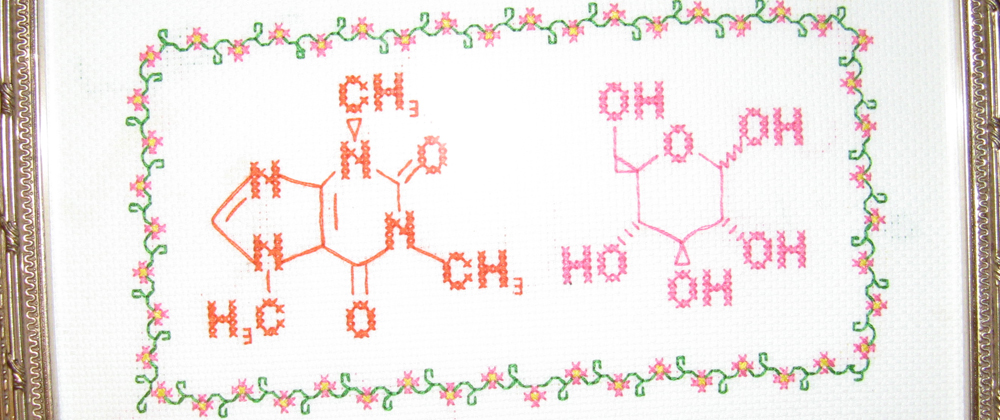First the really important thing: if you haven’t done it yet, write some letters (or send some faxes) to save the Tripoli six. You’ll be glad that you did something to stand up for truth and fairness.
Less life-or-death, but still worthy: Shelley Batts from Retrospectacle is up for a Student Blogger Scholarship, and you can vote for her here.
Now, I’m off to meet John Wilkins for lunch. From our phone conversation:
John: You know what I look like?
Me: Kind of like an albino gorilla?
John: That’s an old photo …
More soon!
Why do scientists lie? (More reminiscing about Luk Van Parijs.)
Yesterday, I recalled MIT’s dismissal of one of its biology professors for fabrication and falsification, both “high crimes” in the world of science. Getting caught doing these is Very Bad for a scientist — which makes the story of Luk Van Parijs all the more puzzling.
As the story unfolded a year ago, the details of the investigation suggested that at least some of Van Parijs lies may have been about details that didn’t matter so much — which means he was taking a very big risk for very little return. Here’s what I wrote then:
What ever happened to Luk Van Parijs?
Just over a year ago, MIT fired an associate professor of biology for fabrication and falsification. While scientific misconduct always incurs my ire, one of the things that struck me when the sad story of Luk Van Parijs broke was how well all the other parties in the affair — from the MIT administrators right down to the other members of the Van Parijs lab — acquitted themselves in a difficult situation.
Here’s what I wrote when the story broke last year:
Friday Sprog Blogging: difficulty with definitions.
At school, the Free-Ride offspring have been celebrating Red Ribbon Week. For the lower grades, this mostly amounts to wearing sunglasses or crazy socks or whatever that day’s Red Ribbon “theme” calls for. But there is also a wee bit of discussion in the classroom about drugs. The Free-Ride parents decided to see what the sprogs had learned:
To Canada I will go with pockets a-jingling.
So, I’m getting ready to go to Vancouver, BC, next week for the Philosophy of Science Association meeting (which coincides with the Society for Social Studies of Science meeting and the History of Science Society meeting). And I’m really jazzed that I’ll get to meet John Lynch and John Wilkins and Ben Cohen and David Ng in the three-dimensional world.
But I’m also psyched that I’m going to be able to get rid of all the Canadian coinage that has found its way into my hands over the last several years.*
How chemistry makes me feel. (One from the vault for National Chemistry Week.)
We’re just past the midpoint of National Chemistry Week, so I thought I’d share a “classic” post (from last year’s National Chemistry Week) about how studying chemistry can nourish one’s human yearnings.
Some academic links worth following.
There is a bunch of interesting stuff to read on the subject of teaching, learning, and being part of an academic department right now. Here are a few links I think deserve your attention:
Happy National Chemistry Week!
Hey, it’s National Chemistry Week (and it has been since yesterday). Also, from 6:02 AM until 6:02 PM today, it was Mole Day.
I had hoped to have lots of time to wallow in the festivities, crack Mole Day jokes, and so on, but as it turns out I have 6.02 x 10^23 things on my to-do list today, so y’all will have to celebrate without me.
Online AP science classes — with lab?
Adventures in Ethics and Science field operative RMD alerted me to a recent article in the New York Times (free registration required) about an ongoing debate on the use of online instruction for Advanced Placement science classes. The crux of the debate is not the value of online science classes per se, but whether such courses can accomplish the objectives of an AP science course if they don’t include a traditional, hands-on laboratory component.
The debate is interesting for a few reasons. First, it gets to the question of what precisely an AP course is intended to do. Second, it brings up the question of who has access to AP courses — and the special challenges presented for science instruction in some regions. Finally, I think it also prompts an examination of how colleges and universities deal with incoming student bodies whose preparation for college is rather more heterogeneous than homogeneous.
Full disclosure: As some of you already know, I regularly teach an online section of my philosophy of science course.* As well, about a hundred years ago, I was a high school student who took a bunch** of AP classes and AP tests.
What I would (and would not) tell 12-year-old me.
Riffing on a Fark.com thread, John Lynch ponders the pearls of wisdom he might offer his 12-year-old self. This got me to thinking that there is useful advice I’d want to share with that earlier time-slice of me, but there is also information about which I think I’d keep earlier-me in the dark.*
Here’s what I’d share with my 12-year-old self:



